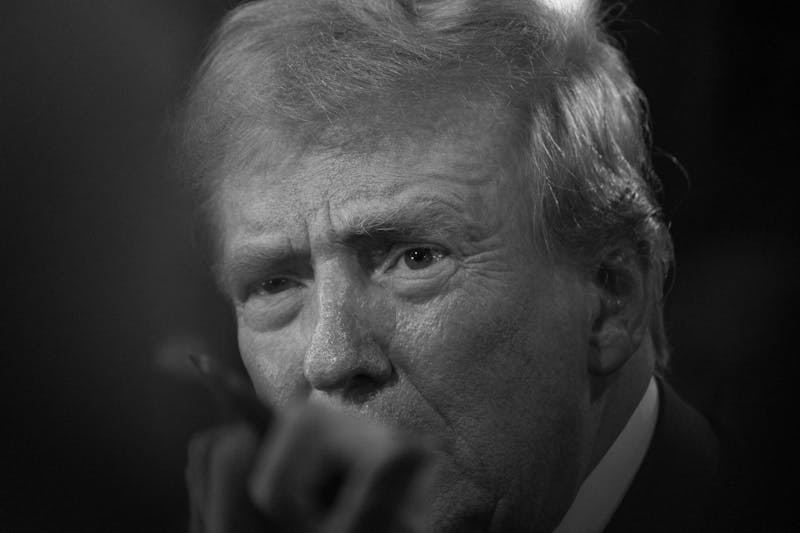From Josh Callahan's, "Under Construction," Fall '99 From Josh Callahan's, "Under Construction," Fall '99The race isn't over but the lessons have already been learned. We won't know who Philadelphia's next mayor will be until late this evening, at the earliest. Registered Democrats outnumber registered Republicans 4 to 1 in this city. No Republican has been elected mayor here since 1947. U.S. Sen. Arlen Specter came closest to returning Philadelphia to Republican rule in 1967, and he still lost by more than 10,000 votes. But Sam Katz, the Republican candidate for mayor, has turned voter polls into a statistical dead heat and will come close to winning at the very least. So why is it that John Street, the Democratic nominee and the former president of City Council, has had to work his ass off to try and win this election? He is black. It is really that simple. I don't want to hear about their positions on the city wage tax, school vouchers or anything else. It is not about party lines or political ideology. It is about color. If Sam Katz wins tonight, it will be because white Democrats voted for him. There is no other possible explanation, contrary to those who will cite lower turnout caused by rainshowers or Katz's efforts throughout the summer to connect with voters while Street's camp kept quiet. In his column in The Philadelphia Inquirer on Sunday, Tom Ferrick analyzed voting numbers and concluded that for Street to win, he needs the following: At least 94 percent of the black Democratic vote, equal percentage turnouts among black and white voters and a small piece of the white Democratic vote as well, perhaps as low as 18 percent. What does it say about party lines vs. racial lines when a Democratic candidate running on a traditional Democratic platform built upon a career in public service has to wonder whether he will get one-fifth of his own party's white votes? Those white voters will each point to various reasons for their support of Katz. Some support school vouchers. Others like the idea of quick reduction in the wage tax, seen as a burden to business growth. Still others may dislike the work Street did while heading up City Council. But when you add all of these people together, the aggregate result is that tens of thousands of people are searching for a reason to ditch their political party and vote for a white candidate. Katz may be a good candidate for mayor, but his differences with Street are not so large that they should be causing such a mass exodus from the Democratic Party. But people are leaving all the same, despite the fact that voters consistently claim to be above such superficial reasons. After all, voters in this country fall into three groups, each with its own claim to a history of transcending racial lines. There are elderly people who authored civil rights legislation, their baby-boom children who proclaimed free love while forcing their parents to confront this country's racist past and the boomers' own children, raised in ostensibly forward-thinking homes. These three groups will all head to the polls today and cast votes based largely on race. This country has seen black mayors in major cities before, including the late Tom Bradley, who ran Los Angeles from 1973 to 1993, and Detroit's current mayor, Dennis Archer, who campaigned with Street on Sunday. There are also 38 black members of the 106th Congress and numerous state legislators. But Carol Mosley-Braun of Illinois was the only black senator until she lost her re-election bid in 1998. There are no black governors. The correlation is obvious -- as the size of a voting area increases, the likelihood a black official will be elected decreases. Without a black majority, black politicians have an uphill fight to get elected. John Street is only the latest example of that. Why do black politicians have such a hard time getting elected any time the electorate is not heavily black? To that question I have no answer other than the obvious one given by Street spokesperson Ray Jones: "Most folk vote for folk who look like them." Politicians are constantly berated by the media for being superficial, unwilling to talk about tough issues in specific terms and for making decisions for irrational or insufficient reasons. Why is it then that voters are given free rein to do those exact same things when electing their government?
The Daily Pennsylvanian is an independent, student-run newspaper. Please consider making a donation to support the coverage that shapes the University. Your generosity ensures a future of strong journalism at Penn.
DonatePlease note All comments are eligible for publication in The Daily Pennsylvanian.







